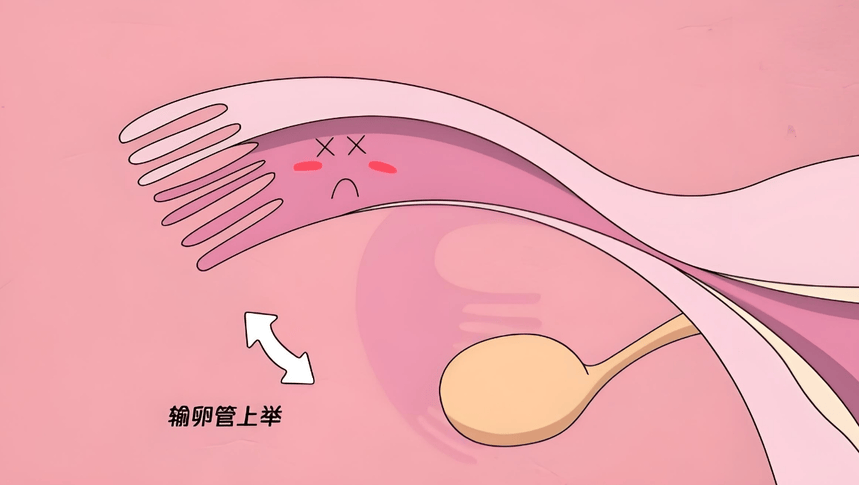Tubal elevation, this medical term may be unfamiliar to many people, but in fact, it is a common gynecological symptom. Tubal elevation refers to the change in the position of the fallopian tube, which may be physiological or pathological. Physiological elevation is often related to body position and does not affect conception. On the other hand, pathological elevation may be related to inflammation, although it may affect the tubal picking up the egg function, the fallopian tube itself remains patent, therefore not completely depriving women of fertility. So, can artificial insemination be performed in cases of tubal elevation?
Image source: Online – deleted upon infringement
Tubal elevation does not affect the success rate of artificial insemination. When choosing in vitro fertilization-embryo transfer technology, the fertilization process is completed under laboratory conditions and is not affected by tubal elevation. The transferred embryos can develop normally in the uterus, thereby achieving pregnancy. Therefore, for patients with tubal elevation, in vitro fertilization-embryo transfer technology is a feasible option.
Additionally, artificial insemination technology is equally applicable to patients with tubal elevation. Although tubal elevation may affect the fertilization process, there is still a possibility of successful conception. To improve the conception rate, for patients confirmed to have tubal obstruction, laparoscopic surgery can be performed first to clear the fallopian tubes, followed by artificial insemination. This can increase the chances of sperm and egg contact and enhance the probability of conception.
Image source: Online – deleted upon infringement
However, when choosing artificial insemination technology, a detailed examination of the patient is required to determine the cause of tubal elevation. If it is due to physiological reasons, artificial insemination can be directly performed. If it is due to pathological reasons, inflammation needs to be treated first, and then artificial insemination can be carried out after the condition stabilizes. Furthermore, patients undergoing artificial insemination need to maintain a positive mindset, actively cooperate with the doctor’s treatment to improve the success rate of conception.
In conclusion, tubal elevation does not hinder the implementation of artificial insemination. Whether choosing in vitro fertilization-embryo transfer technology or artificial insemination technology, pregnancy can be achieved. For patients with tubal elevation, the key is to identify the cause of the elevation, take appropriate treatment measures, and undergo artificial insemination under the guidance of a doctor. At the same time, patients should maintain a positive attitude, believe in their ability to successfully conceive. In today’s advancing technology, artificial insemination techniques continue to improve, and more and more infertility patients will realize the dream of becoming parents through this technology.


